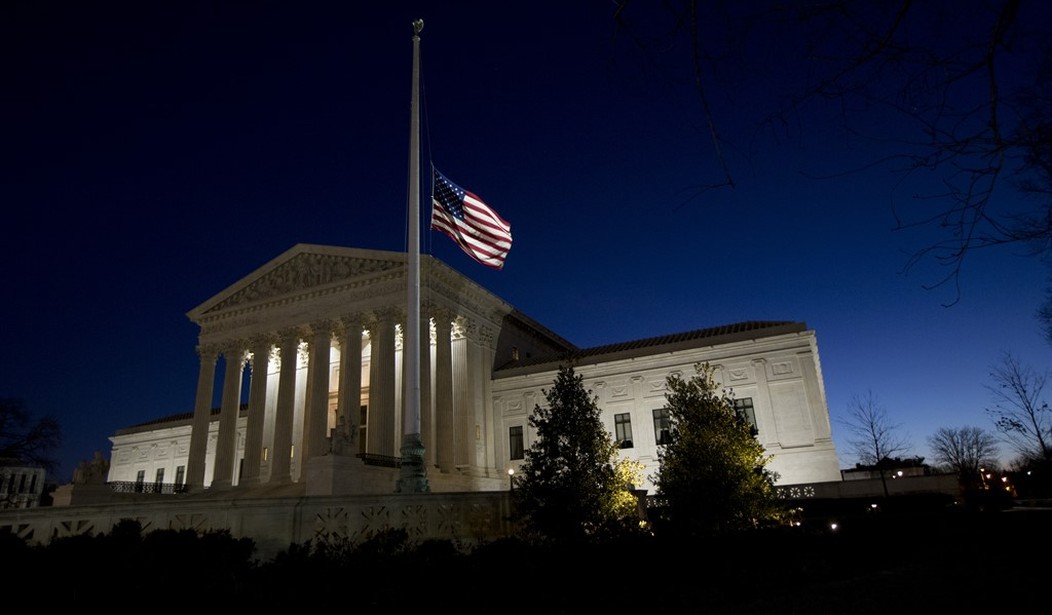When it comes to the nomination and confirmation of Supreme Court justices, there is only one type of judge that should ever be considered: an originalist. The late Justice Scalia said it best in March of 2014, now revived in a meme making its way around Facebook: "The Constitution is not a living organism. It's a legal document, and it says what it says and doesn't say what it doesn't say."
Scalia went on to say that if someone is unhappy with the way things are, then they should use the legislative branch to make a change – by persuading one’s fellow citizens. As a democratic republic, we can also change our minds based on the results. Prohibition and its repeal come to mind as one example.
Scalia also said, “You think there ought to be a right to abortion? No problem. The Constitution says nothing about it. Create it the way most rights are created in a democratic society. Pass a law. And that law, unlike a Constitutional right to abortion created by a court can compromise.”
This was the genius of our Founding Fathers – to create three separate branches of government, each with its checks and balances.
Liberal philosophy, however, undermines all of this to our country’s detriment. The Liberal philosophy, repeatedly on display for all to see, is that words don’t mean what they say. Everything, Liberals assert, is “open to interpretation”.
Liberals believe that a man or a woman is not necessarily a man or woman even if one’s chromosomes and genitalia dictate what they are. Liberals believe that a man or woman can “identify” as literally anything, including a chicken, if they so choose.
Liberals believe that things depend on what the definition of “is” is.
Recommended
Liberals do not believe in objective truth, as writer/comedian Evan Sayet writes in the opening paragraph of his book, “The Kindergarden of Eden”. If there is no objective truth, and words don’t mean what they say, and can be interpreted to mean something other than what they say, then the Constitution suddenly becomes a “living document”.
And suddenly, everything our nation was founded on goes out the window. It’s not like the Founding Fathers just spit-balled around a table and threw everything into the Constitution. It was written by the greatest minds in a tortured and highly political process.
Yes, the Constitution is open to some degree of interpretation because of the deliberate ambiguity in some portions of the text. Yet the point of originalism is to avoid drawing inferences from a statute and rely on the text itself. Scalia said, “the Constitution, or any text, should be interpreted [n]either strictly [n]or sloppily; it should be interpreted reasonably”.
There are far greater intellects that have examined and explained originalism. The point here is that Liberal philosophy throws away the entire approach, and relies on whatever a judge fancies at the time, whatever is in the zeitgeist, and even whose feelings might be hurt if a certain decision is handed down.
One thing we can be certain of: the Founders did not intend the Constitution to be interpreted according to a jurist’s feelings. Consider the dangers of such an approach. The Second Amendment becomes as equally vulnerable as the Thirteenth. The former could be interpreted in such a manner as to prevent individual ownership of firearms, while the latter could be interpreted as being outdated and irrelevant, and return African-Americans to slavery.
The late Justice William Rehnquist, in “The Notion of A Living Constitution”, wrote, “A mere change in public opinion since the adoption of the Constitution, unaccompanied by a constitutional amendment, should not change the meaning of the Constitution. A merely temporary majoritarian groundswell should not abrogate some individual liberty truly protected by the Constitution.”
Rehnquist warned of judges overstepping the role that the Constitution set out for them, writing, “[What if] Judges then are no longer the keepers of the covenant; [but] instead they are a small group of fortunately situated people with a roving commission to second-guess Congress, state legislatures, and state and federal administrative officers concerning what is best for the country?”
Indeed, this is where the courts have gone off the rails. If We The People desire a certain social goal, then let it be done via the legislative branch, not by an unelected judiciary deciding what is best for society. If nobody can get that law passed, then that’s just too bad. It isn’t a court’s place to pass it for us.
Perhaps students of the Dred Scott decision will recall that the Court essentially said the decisions regarding what territories were to be free, and which were to recognize slavery, were never for Congress to have decided in the first place. Is that what we really want?
Thus, there should be no need to politicize any Court appointment. Only originalists should be considered to be qualified candidates.

























Join the conversation as a VIP Member